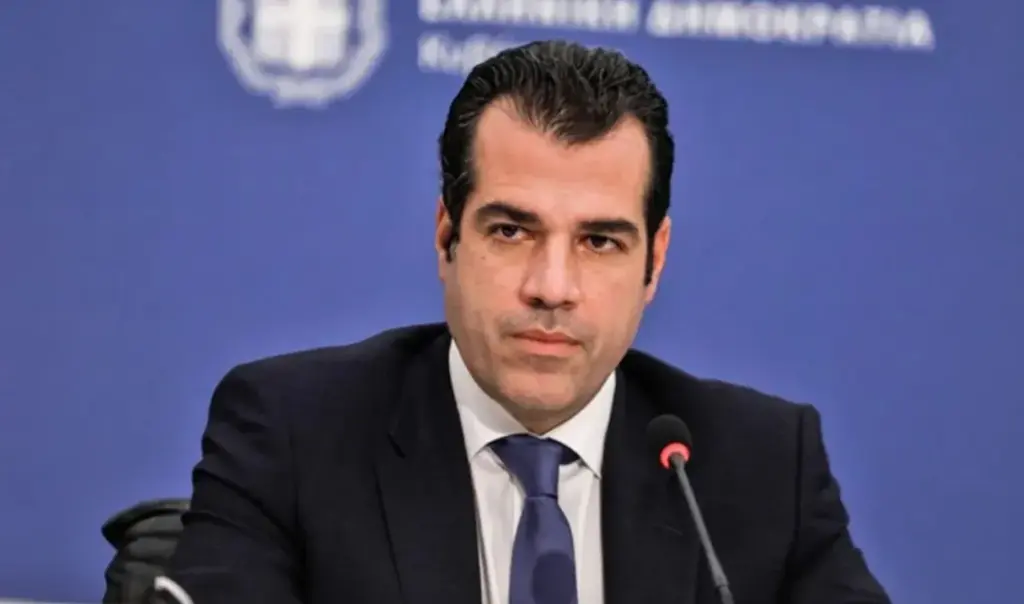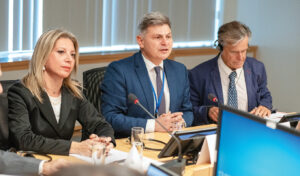“The networks operate through multi-faceted processes and we can never be certain if an aggressive move will be made. Therefore, we must be prepared,” emphasized Migration Minister Thanos Pleyris. He added that migration flows to the country have stabilized over the past 20 days, while also discussing the ways the government is trying to solve the problem and plans for a closed facility in Crete. “From the day we voted on the amendment until today, (about 20 days) the total number is below 800 people, while when we were voting on the amendment we had over 800 people per day,” Minister Pleyris initially stated.
“247 people have been transferred to pre-removal centers and about 550 more people, of whom 300 are currently being transferred to a closed facility that we have handed over from the Migration and Asylum Ministry to the police. The same will happen with the rest, as the regime for anyone entering after the amendment was passed is that they do not enter accommodation facilities, they are arrested, remain detained and the procedure is followed for them to return to the country they came from or their country of origin,” he continued, speaking on SKAI television.
As the minister emphasized: “The essence is that we have a balancing to a large extent of the flow. We’re not saying there’s no flow at all. Weather has also played a role in this, as some of these days had bad weather conditions. Correspondingly, there is significant pressure at the diplomatic level for the eastern Libya government to cooperate even more regarding information about boats departing from the coasts. So far we have avoided large boats leaving, because the big problem and very large flows occurred when boats with 300-350 people were departing. At this moment we don’t have such a phenomenon. And certainly our decision plays a major role because gradually there is a clear message that in Greece you cannot apply for asylum, you don’t enter accommodation facilities, you go to prison.”
Pleyris on migrant returns
He also mentioned that “we had seen strange activity before we voted on the amendment. We had seen an aggressive process on the internet and social media calling people from Libya to move towards Greece, and Crete, which we monitor very carefully. This put us in an additional framework that we must be fully prepared.”
Regarding migrant returns, Minister Pleyris said “I believe we will complete the procedures to have more returns because it’s important that at this moment people have detention conditions and not freedom. But there must also be more returns to make it clear to those on Libya’s coasts, which is our main pressure point right now, that it makes no sense to pay someone to move because they will return back.”
Regarding electronic monitoring, Minister Pleyris explained that “with the new bill to be voted on at the end of August to early September, as soon as someone applies for asylum the control procedure automatically begins. This takes about a month. Then they must return voluntarily. Because we often have the phenomenon of losing track of them when you give them time for voluntary departure, those whose asylum is rejected will be placed, depending on their profile, either in administrative detention directly, or under electronic monitoring so we have complete surveillance of them.
At this moment, a major aspect of achieving returns is getting countries to accept them back. Most returns happen when the person also consents. And we try with all these measures to force this illegal migrant to cooperate, because when they cooperate, we can automatically have more returns than we have now.”
About the Crete facility
Asked about the facility in Crete, the Migration Minister mentioned that the goal is to find space and have it ready next summer.
“There will be a facility in Crete. We have already requested funding from the Commission. It requires a timeframe. If we consider that flows reach until October and usually after that due to winter we have a big decrease, the basic goal is for the main facility to be ready to prepare for next year. The spaces that had been suggested to us did not meet the terms and conditions for us to immediately create a facility. We had examined some military camps. Based on conditions they could not immediately become facilities and the scenario was chosen to calmly build the facility where it should be and find the space, and there will be discussion with the local community.”
Minister Pleyris noted that spaces have already been found for initial flow management. “With Chania and Rethymno we have reached agreement, with Heraklion we are still in some considerations.”
Meanwhile, the minister noted that “a central theme at the Migration Ministers’ council was to have migrant detention outside Europe, and this includes Libya,” while noting that the eastern Libya government is in negotiations with the EU for a meeting to finally take place.
“And the eastern side wants to exploit this meeting because beyond any reciprocal benefits it may have for migration, it’s also a part of recognition,” he concluded.




